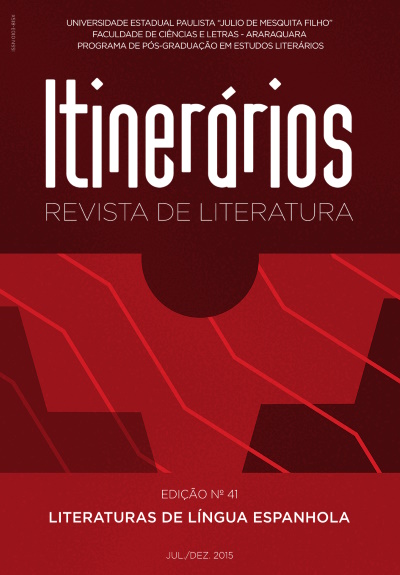Tradição e apropriação: El hacedor (de Borges), remake de Fernández Mallo
DOI:
https://doi.org/10.58943/irl.vi41.8415Palavras-chave:
Autoria, Originalidade, Fernández Mallo,Resumo
O cenário cultural espalha indícios de que a figura do autor ocupa no contemporâneo uma posição ambivalente. Ao mesmo tempo em que não podemos nos descartar tão facilmente de seu nome e da função que exerce na relação que mantém com o texto literário, já convivemos com episódios e obras que demonstram um desprendimento, um deslizamento dessa mesma função, sugerindo uma reinvenção do modo de inscrever assinaturas. Assim, a comunicação quer apostar no comentário de um estudo de caso em particular: trata-se de El hacedor (de Borges), remake do escritor espanhol Agustín Fernández Mallo. Identificando nesse texto uma estratégia de composição que recicla ideias e imagens já presentes na obra de Jorge Luis Borges, é fácil ver como tal procedimento de escrita ganha fundamento teórico se consideramos as noções de “escrita não-criativa” tal como elaborada por Kenneth Goldsmith e “gênio não original”, investigada por Marjorie Perloff. Nesse sentido, a hipótese é que a “apropriação criativa” em operação pode ser considerada como uma estratégia de redimensionamento dos modos de entendimento da autoria na dinâmica de forças do sistema literário, comprometendo, por tabela, a noção de obra, de originalidade e o próprio conceito de literatura.
Downloads
Publicado
Edição
Seção
Licença
Os manuscritos aceitos e publicados são de propriedade da revista Itinerários. É vedada a submissão integral ou parcial do manuscrito a qualquer outro periódico. A responsabilidade do conteúdo dos artigos é exclusiva dos autores. É vedada a tradução para outro idioma sem a autorização escrita do Editor ouvida a Comissão Editorial.

